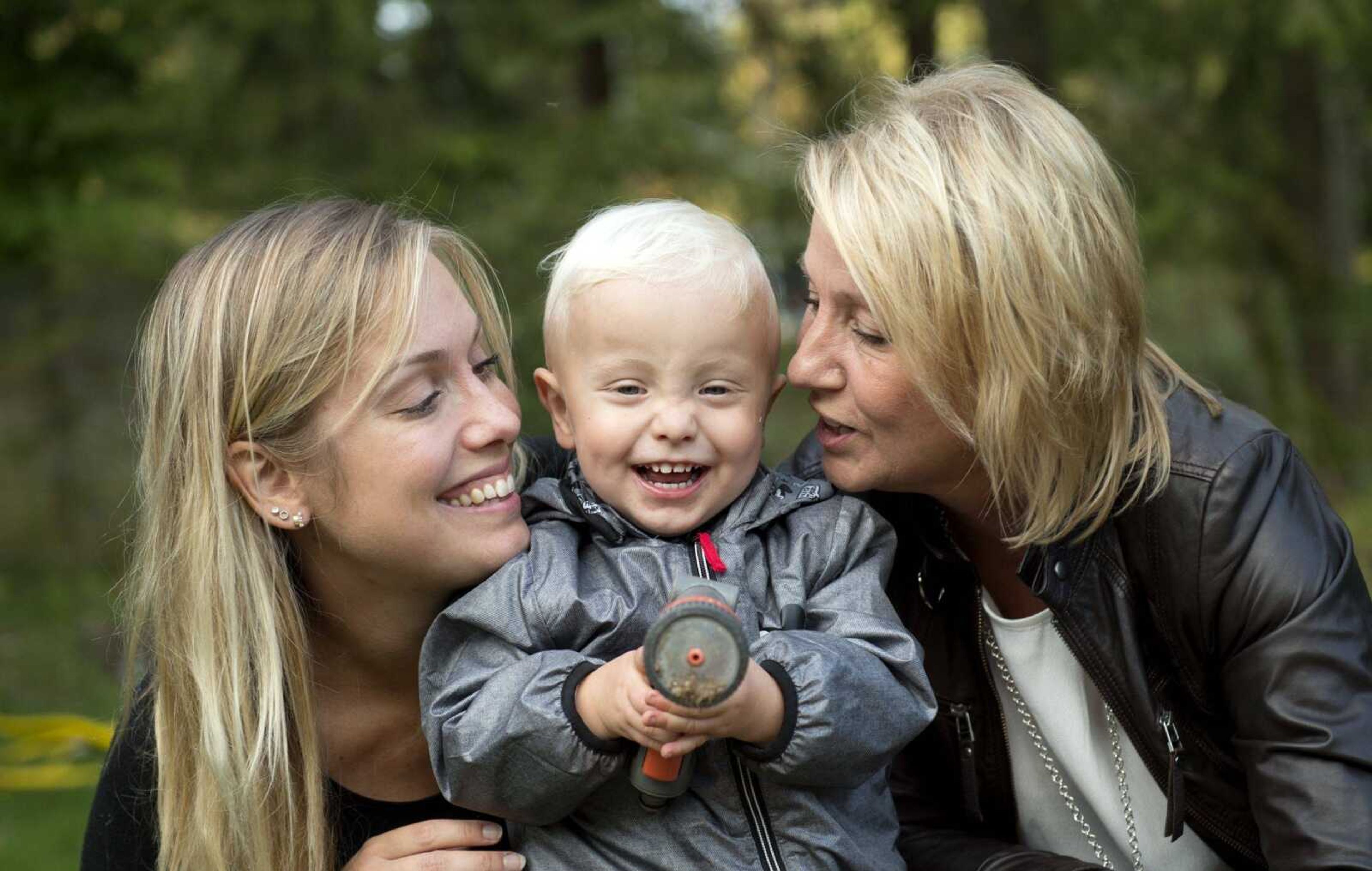Woman who has baby with mom's womb: It's 'science fiction'
BERGSHAMRA, Sweden -- Emelie Eriksson has a bond with her son that hardly seems possible: She and her son were born from the same womb. Eriksson was the first woman to have a baby after receiving a uterus from her mother, in a revolutionary operation that links three generations of their family...
BERGSHAMRA, Sweden -- Emelie Eriksson has a bond with her son that hardly seems possible: She and her son were born from the same womb.
Eriksson was the first woman to have a baby after receiving a uterus from her mother, in a revolutionary operation that links three generations of their family.
"It's like science fiction," Eriksson, 30, said at her home just north of Stockholm. "This is something that you read in history books, and now in the future when you read about this, it's about me."
Eriksson's son, Albin, is now nearly 2. She agreed to share her story because she hopes other women who need help having a child will be encouraged and inspired by her family's extraordinary womb transplantation experience.
"I hope this will be a reality for everyone that needs it," she said.
Her operation was performed by Mats Brannstrom, a Swedish doctor who is the only person in the world to deliver babies -- five so far -- from women with donated wombs.
Brannstrom believes the operation one day will be common. He is working with doctors elsewhere, including at Harvard Medical School and the Mayo Clinic in the U.S., to perfect the procedure.
Two of his former team members were involved in four womb transplants at Baylor University in Texas announced last week.
Eriksson was 15 when she began wondering why she hadn't gotten her period; a doctor discovered she had been born without a womb.
In her early 20s, Eriksson began reading about scientists attempting to create organs from stem cells and was told about the womb-transplant research pursued by Brannstrom.
She described the project to her mother.
"I thought this was something that could only happen (far) in the future," said Marie Eriksson, 53. "But then I said to Emelie, 'I'm so old, I don't need my womb, and I don't want any more children. This is your only chance to have a child and you should take it.'"
Eriksson emailed Brannstrom, and after several trips to Gothenburg and dozens of medical tests for Ericksson and her mother, they were accepted into his trial testing the pioneering transplant.
"I'd known all my life that I wouldn't be able to be pregnant," Eriksson said. "But maybe now there was a small, small chance for me."
Eriksson's husband, Daniel Chrysong, agreed to go ahead after meeting Brannstrom and being reassured he wasn't "some lunatic doctor."
She had two mild rejection episodes in the months after the surgery, but doses of steroids helped them pass. After a year, Eriksson was ready to attempt to get pregnant. Brannstrom's team transferred a single embryo into her womb, which Eriksson and Chrysong had created during in-vitro fertilization.
The first pregnancy test was negative. Eriksson was discouraged, but took another test a week later: that one was positive.
"When I called my mom to tell her, she was like, 'I knew it!"' Eriksson said. She said her mother told her, "I knew I had a good womb."
Eriksson was only convinced they had succeeded when she heard her newborn son scream in the delivery room.
"I realized that everything had worked," she said.
Chrysong was so overcome he fainted and had to be watched over by the anesthesiology nurse on the floor of the hospital room.
Eriksson said she and Chrysong intend to explain to Albin exactly how he was born, one day. "I'm not sure he will understand exactly everything that me and my mom had to go through," she said.
Connect with the Southeast Missourian Newsroom:
For corrections to this story or other insights for the editor, click here. To submit a letter to the editor, click here. To learn about the Southeast Missourian’s AI Policy, click here.









